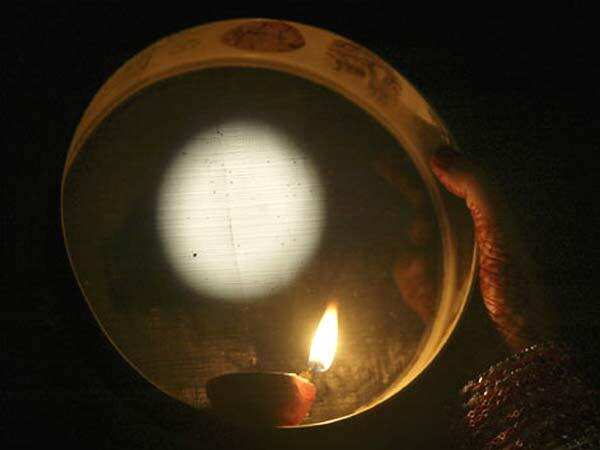The story of Karwa Chauth
It has been rightly said that Mewar is a land of festivals. The period between Sharad Purnima, the night when the moon is at its glorious best and Kartik Purnima, with which concludes the holy month of Kartik, has a large number of festivals, like Karva Chauth, Dhan Teras, Choti Diwali, Diwali, Annakoot and Bhaiyya Dooj. The last five days of the month called Panchthirthi are auspicious in its own way.

It has been rightly said that Mewar is a land of festivals. The period between Sharad Purnima, the night when the moon is at its glorious best and Kartik Purnima, with which concludes the holy month of Kartik, has a large number of festivals, like Karva Chauth, Dhan Teras, Choti Diwali, Diwali, Annakoot and Bhaiyya Dooj. The last five days of the month called Panchthirthi are auspicious in its own way.
Karva Chauth, which falls on the fourth day of Kartik is unique. There is an interesting legend about this festival. Once, a man had seven sons and a daughter all of whom loved each other deeply, on Karwa Chauth evening the brothers asked their sister to have dinner together. The sister said that she would not do so before the moon rose visibly high.
The brother could not see her go without food; they lit a bonfire on a hilltop and made her feel that the moon had come out. She performed her prayer and had her dinner. The other ladies in the house did not join her. Soon after the breaking of fast, she got the news that her husband is not well. On her way to see her husband, people blessed her but nobody gave her blessings to be a ‘suhagin’ (Married female), except her sister-in-law. Reaching her in-laws house, she found that she had lost her husband. She prayed to Chauth Mata to bring him back to life. She waited for a whole year at the end of which Chauth Mata of Kartik fulfilled her wish and her husband was live again.
From that day people began to believe that women should fast for the welfare for their husband. On Karva Chauth, women fast for whole day and do not take even a drop of water. Dressed in gorgeous clothes, laden with ornaments, they perform elaborate prayers and break their fast after seeing the moon.
On the observance of this festival, there are extremely divergent views. One school of thought feels that by fulfilling the marriage vows the marital bond is strengthened. Fasts are not mere show off of relationships, rather a duty that adds to ones karma, where the husband or wife does not live for oneself, but for each other and the family. The Karwa Chauth moon appears to be brighter and the whole firmament, the moon, the stars and the expansive sky is reflected in the water of the thali (plate).
Karwa Chauth symbolizes the vow of living together and fasting enhances power of pledge. Woman is the core round which the whole family revolves; welfare of all the members of the family is interlinked through this one central character.
While, there are others who feel that it is unfair that a wife has to fast for her husband’s welfare. It is an outdated custom to assert men’s superiority over women. Why is a husband not asked to fast for the security of his wife? They also feel that the media, TV serials and films that glamorize this festival are responsible for creating hype for their own benefit. Retail companies also exploit this occasion to the utmost for the sake of their own pockets.
To join us on Facebook Click Here and Subscribe to UdaipurTimes Broadcast channels on GoogleNews | Telegram | Signal


